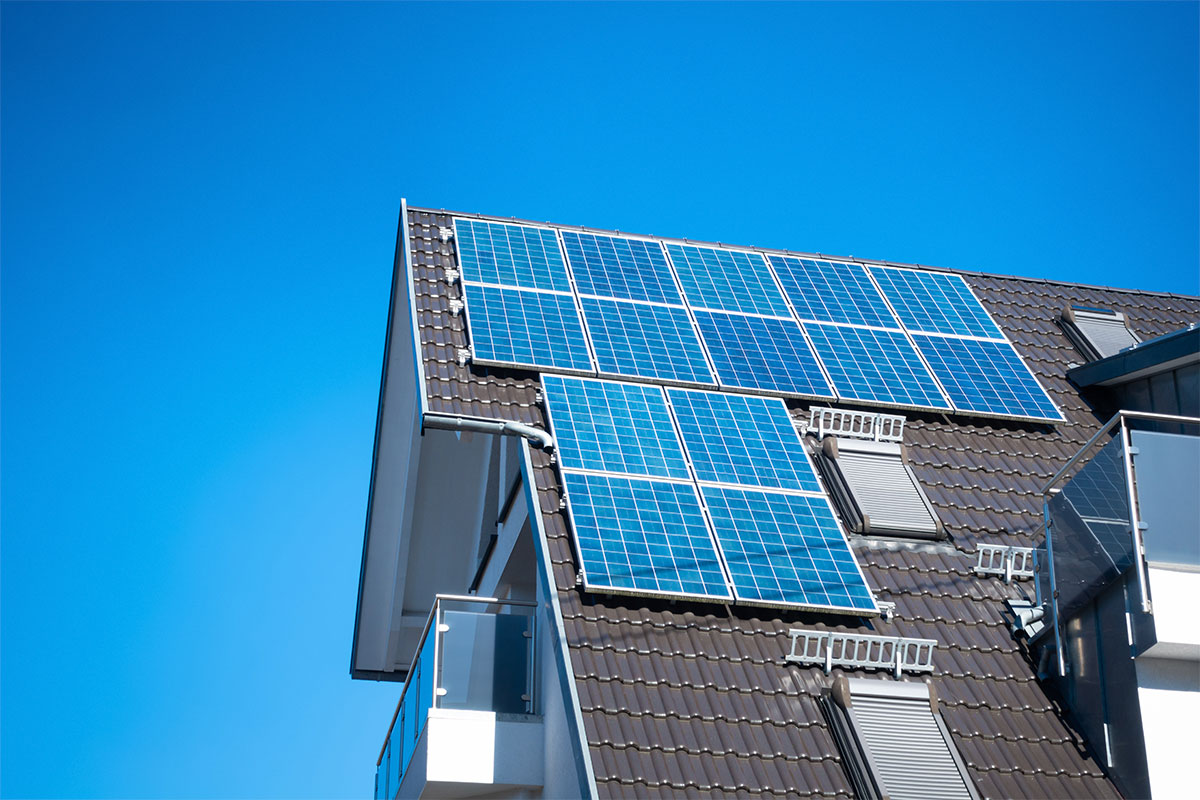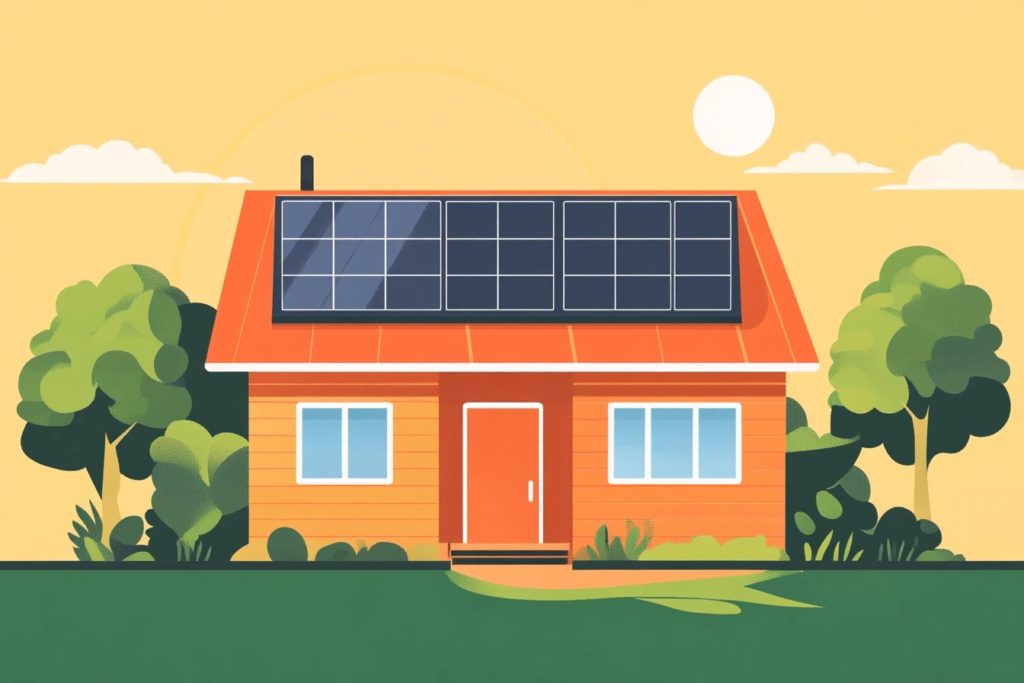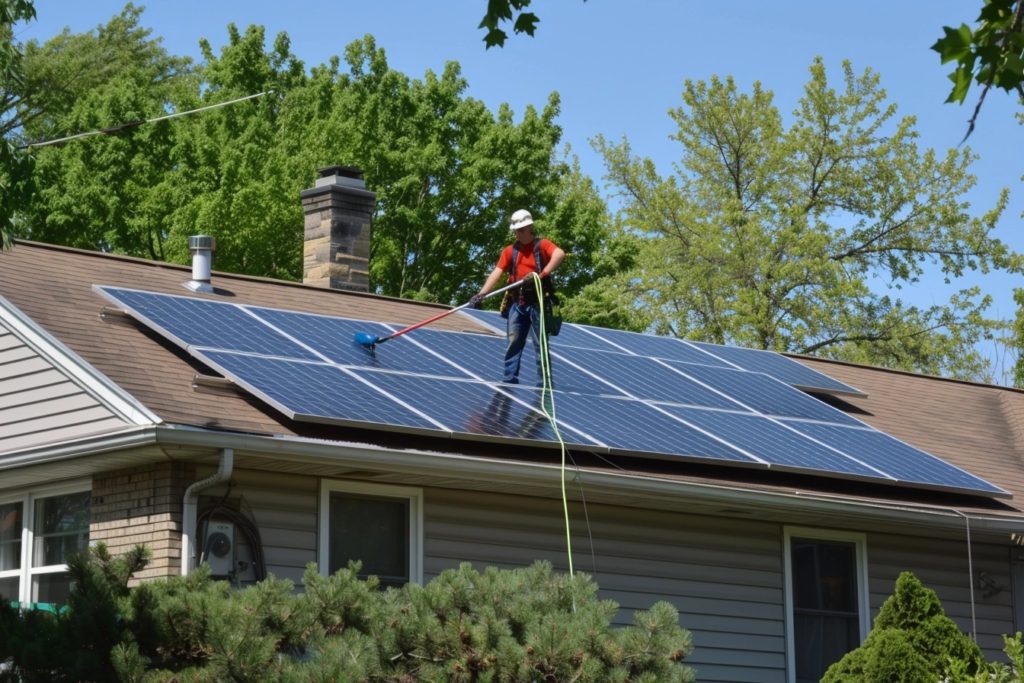
If you’re designing a solar energy system to power your home, you obviously want the most effective solar panels you can find, right? Homeowners from coast to coast are turning to rooftop solar arrays to provide clean, renewable, and affordable energy for their families. Not only does this protect the environment, but it also protects your wallet by reducing or even eliminating your reliance on the traditional utility company.
High-efficiency solar panels have become increasingly popular for homeowners all across the country, but not everyone needs or can take advantage of these panels. To help you decide whether you should install residential high-efficiency solar panels, we’ll walk you through several important distinctions in this high-efficiency solar panels comparison guide.
Why Does Solar Panel Efficiency Matter?
To start, let’s quickly define what solar panel efficiency even means. When you hear the term “solar panel efficiency,” this is referring to the amount of direct sunlight that the panel is capable of converting into electric current. There is some variance when it comes to the number of cells in a solar panel (some panels have as few as 60 cells, while others get close to 100 of them), and these cells can also vary in efficiency and quality.
Therefore, a solar panel’s efficiency rating is determined by the number of cells present in the panel, how efficient each of those cells is, and how much space there is between the cells and the body of the panel itself. So, what does this mean for high-efficiency solar panels? It’s important to understand that high-efficiency solar panels don’t necessarily generate more energy than other panels. Instead, they simply require less room to generate the same amount of power.
So, for instance, if you’re looking at two solar panels that both produce up to 400 watts of energy, the smaller of the two panels is the more efficient one. As a general rule of thumb, the typical residential solar panel usually has an efficiency rating in the ballpark of 15-18%, while high-efficiency panels can approach 23%.
Can Hot or Cold Days Affect the Efficiency of Solar Panels?
All solar panels are affected at least somewhat by changes in temperature. As with most other electronic devices, a solar panel’s efficiency increases as the temperature drops. Manufacturers usually test high-efficiency solar panels in controlled-temperature environments set around 40 degrees Fahrenheit. As the temperature rises, the panel’s efficiency suffers a bit, although it’s typically not a big deal.
For instance, solar panels in 60-degree weather will typically produce about 5% less power, while 80-degree heat reduces efficiency by roughly 8.5%. Some solar panels are less affected by temperature changes than others, but this does not factor into the distinction between high-efficiency solar panels and standard panels.
That said, the temperature does not affect solar panel efficiency nearly as much as light levels do. As you might expect, solar panels produce significantly more energy in direct sunlight than they do on an overcast day — and they generate very little energy at all in the evening. This is why, in some scenarios, your solar panels will actually generate more energy on hot days because the abundant direct sunlight outweighs the loss of energy generation due to the heat.
How Much Does Geography Affect Solar Output?
Where you live has a tremendous impact on your residential solar energy system’s output. In certain parts of the country that receive lots of sunshine (say, Arizona or New Mexico), solar panels can have a 50% or even higher efficiency advantage over the exact same panels in cloudy climates, like parts of the Pacific Northwest or New England. Google’s Project Sunroof is an excellent tool to help you determine the solar viability of your specific address within the U.S.
How Expensive Are High-Efficiency Solar Panels?
The cost of high-efficiency solar panels does vary from company to company, and it’s possible that you may pay higher or lower rates than average depending on who you choose as your solar installer. However, we can still make some general statements. As you probably expect, high-efficiency solar panel costs are indeed higher than those of a typical panel.
As a quick benchmark, the SunPower MAXEON 3 is one of the most efficient commonly available solar panels on the market today. For a 400W MAXEON 3 panel, you will likely pay around $435. Meanwhile, you can often find a typical 400W panel for less than $300, and used panels can cost significantly less than that.
In Conclusion
If your roof is large enough to handle your entire solar array, you likely don’t need to spend the extra money on high-efficiency solar panels. However, high-efficiency panels are a fantastic option if you need to generate lots of energy from a relatively small footprint. To create a system with identical power levels, the version with high-efficiency solar panels will take up significantly less space.
Still have questions about the cost of high-efficiency solar panels, or whether you need them to begin with? Simply contact LGCY Power at your convenience by calling 855.903.1909, and one of our expert representatives will be happy to help you find the answers to your toughest questions.




